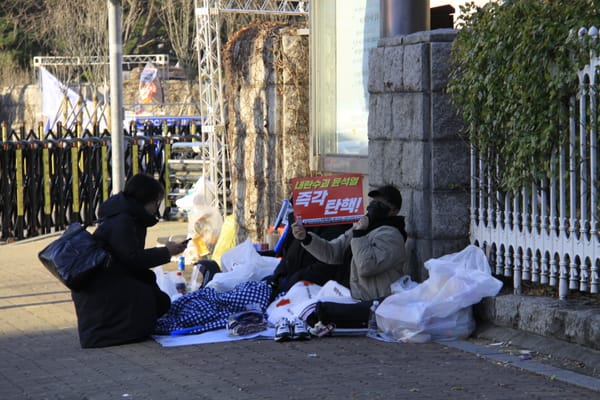Asia Undercovered Special Issue: Black Lives Matter in Asia

We at Asia Undercovered try to steer clear of over-covered news like Trump’s latest tweets, but here’s a trending topic that we feel deserves more attention: #BlackLivesMatter.
Over the past few months, a renewed BLM movement has spread around the world, including in Asia, where protesters are not only taking to the streets in solidarity with those in America, but also highlighting ongoing inequalities and discrimination within the region. Some are also highlighting the hypocrisy of leaders who are vocal about #BlackLivesMatter in the United States, but carry on perpetuating ongoing inequality in their own countries.
In this special issue, we’ve collected stories about how the BLM movement is playing out in Asia, and highlight the parallel struggles that are undercovered by western media.
This issue was written by Daniela Muenzel, a freelance writer and communications specialist.
Supporting Black Lives Matter in Asia
“More impactful than a thousand laws” – A 25-year-old Thai-Mali vlogger Natthawadee “Suzie” Waikalo uses her influence with over 166,000 TikTok followers, to share what it’s like to be Black in Thailand, and tackle ignorance and racial prejudice in Thai culture, where whiteness is still the number one factor for beauty (Asaree Thaitrakulpanich, Khaosod English)
What it looks like organizing a BLM march in Japan: this interview in Fukuoka Now, with Bako and Athena, two Black American women teaching in Japan, share what it’s been like to set up Black Lives Matter Fukuoka. They share how they feeling helpless watching their country crumble from afar, and the importance of marching for a global issue.
Parallel struggles in Asia
Parallel struggles and the opportunity for international solidarities: Thailand based activist Macy-Châu Diễm Trần writes on the links between human rights issues in Southeast Asia and Black America, and the on strength in interconnected social movements, from indigenous land protection in the Mekong region to fighting police brutality in the US. South East Asia Globe
Fueled by increasing awareness of racial injustice through the BLM movement, more Indonesians are responding to mistreatment of West Papuans, who are darker skinned than other ethnic groups in the archipelago. They are even standing up for 56 Papuan political prisoners, demonstrating that solidarity is growing as never before (Veronica Koman, Ronni Kareni The Sydney Morning Herald).
Exposing hypocrisy
While it’s welcome to see Asians voicing support or linking the plight of Black citizens in the US with discriminated groups in their own country, others are sadly failing to recognize the relevance, and universality, of this movement.
In Japan, local protests were often met with responses like “This is an American issue” and “Please do this in your own country.” Illuminating stories such as discrimination against biracial tennis champion Naomi Osaka, violent police mistreatment of a Turkish immigrant, and the historic discrimination against minorities of Korean descent, Motoko Rich and Hikari Ida highlight how, Japan is, in fact, a very much racist society (New York Times).
Meanwhile in India, Bollywood stars who were silent during an increase in persecution of minority Muslims, Bahujans, political critics, activists, academics and the media, are now voicing support for #BlackLivesMatter. Eesha on ‘performative wokeness’ and the need for better heroes in Feminism in India.
In the Philippines, Duterte’s “War on Drugs” has seen even teenagers murdered and the poor dehumanized. Cecilia Lero writes that the policies are a copycat of the racist US policy which, rather than actually controlling drugs, were aimed at controlling the population and promoting police brutality, and that Filipinos cannot support both the BLM movement and the drug war (Rappler).
And lastly, sadly, #BLM support with an ulterior motive: the Chinese government is using the movement to not only point out the US’s hypocrisy in criticizing China’s human rights, but also emphasize the failure of the liberal democratic system. Jo Kim writes on this, and how China could become the next target of BLM, considering racial tensions and its growing investment in Africa (The Diplomat).
Where the silence is heard
Lastly, the silence around Black Lives Matter that sheds light on wider issues around freedom of speech, ingrained racism and lack of awareness in Asia.
American K-Pop fans, known for speaking out when media portrays K-pop with racist undertones, were disappointed to find that the industry had stayed mostly quiet about the global movement, even though “K-pop is based on Black Music.” (Hye Jin Lee in The Conversation).
In China as well, Hip hop stars and their fans stayed silent. Viola Zhou explores the reason for this – from racist sentiment in Chinese society, to Beijing’s propaganda against all civil activism and career risks (Inkstone News).
And in Hong Kong, where year-long mass protests shared similarities with the BLM protests, there was no mass rally by pro-democracy protesters. One possible reason for their reluctance: one powerful target of Hong Kong’s protests is also arguably the BLM movement’s biggest detractor (Helen Davidson, The Guardian).
Asia Undercovered: In-depth round-ups and analysis of the news, events, trends and people changing Asia, but not getting enough attention in the US media.



